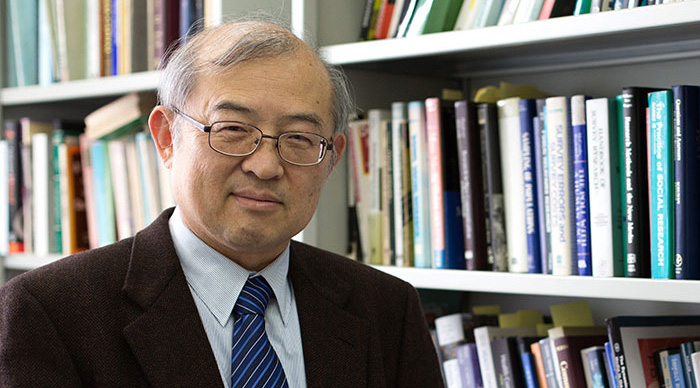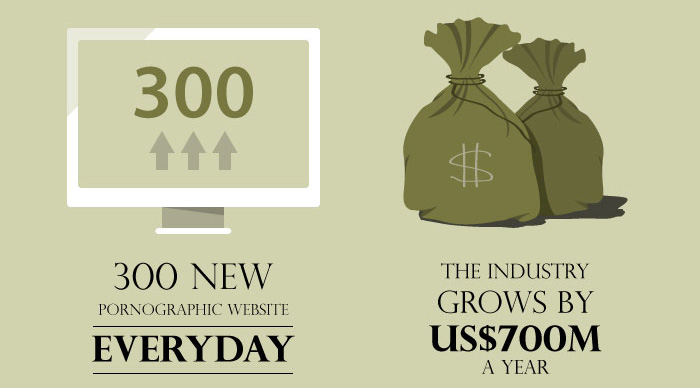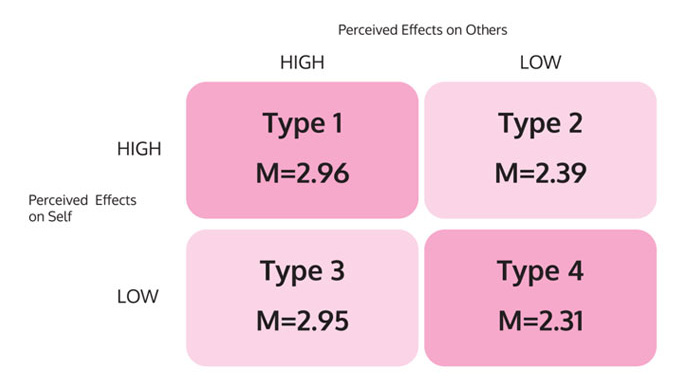Dear readers, With the launch of e-newsletter CUHK in Focus, CUHKUPDates has retired and this site will no longer be updated. To stay abreast of the University’s latest news, please go to https://focus.cuhk.edu.hk. Thank you.
Who's Watching Who on the World Wide Web?

Prof. Lo Ven-hwei
School of Journalism and Communication
The mums and dads of teenagers may be aghast to find their kids surfing for online pornography. But it's unlikely they think that the same kind of content would do themselves any harm.
Such a "third-person effect" also applies to what the sexes think of each other regarding sexually explicit material. Women think that pornography will have a much more dramatic, and negative, impact on men than they envision it would ever have on themselves, according to the research of Prof. Lo Ven Hwei of the School of Journalism and Communication at CUHK.
Professor Lo chose to study such a controversial topic because people's reactions are so strong and because internet pornography is a relatively recent and unstudied field. There are 300 new pornographic websites every day, Professor Lo's work shows, and the industry grows by US$700 million a year.
His statistical analysis of the phenomenon of how people react to internet pornography has implications that carry over to legislation, sex education, restrictions at school or local level, and other kinds of curbs.

Previous research found that it was important to calculate the impact online pornography was having on the subject ("me") and another person ("you"). Professor Lo's research exploded those theories – to anticipate how people are likely to act, it's the impact on third parties ("them") that drives behaviour.
"People will perceive that other people are more affected by media content, and they will take action as a result of such perception," Professor Lo says. "We should use perceived effects of others as a predictor of behaviour."
Such understanding of what drives people's response could help educators to develop better sex-education materials, by making sure they are seen as useful and necessary, and could give politicians a better feel for what kinds of restrictions on pornography that people would accept.
Professor Lo's work found that if the aim is to restrict or prohibit school-age students from viewing online pornography, it is important to prevent access to those websites: "After exposure to internet pornography, people feel less perceived effect on themselves and on others. It has a desensitizing effect."
The results came from a survey of 2,713 students in Taipei, half from high schools and half from college. It was a real challenge to get the necessary approvals from the principals of the schools involved, and the teachers, whose classes were drawn at random. Around 40 per cent of the respondents said they had viewed pornography online.
While internet pornography may be one of the most controversial topics to study, the "third-person effect" applies not only with sexually explicit material. In other studies, Professor Lo's work has analyzed many types of content that one person thinks other people should not be able to view, sometimes with disastrous effect.

"The perceived effect on others has caused thousands of people to be imprisoned, tortured or even killed," Professor Lo says, with oppressive governments punishing citizens who have accessed content they believe is undesirable.
That's because people often wish to censor the information that others have access to, while discounting any threat to themselves. In the extreme, they punish people who disseminate messages that they view as dangerous, such as political opinions or comments they find objectionable.
"It is difficult to get the censors to admit the content has had any negative effect on themselves, but they feel the negative content will have a greater effect on other people," Professor Lo says. "The protection of other people is a need to enhance their self-esteem or ego, by assuming other people are vulnerable to the immediate effect."
By Alex Frew McMillan
This article was originally published on CUHK Homepage in Mar 2014.